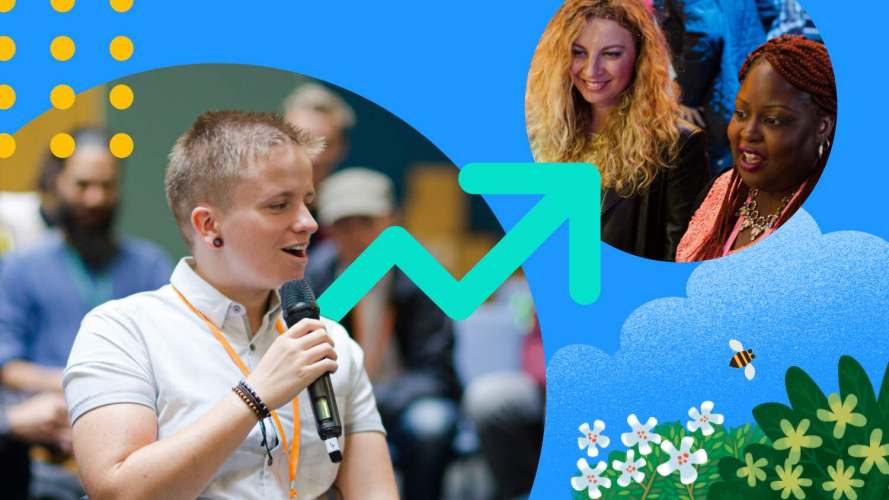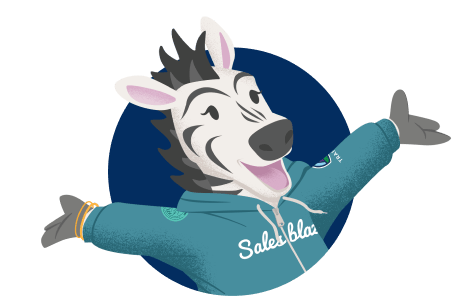Why You Should Stop Networking to Grow Your Sales Career



In a world of transactional how-do-you-dos, community offers the opportunity to build supportive relationships you won’t find elsewhere.
Sellers live and die by their networks. You make a sale, you ask for a referral. You do favors for industry insiders so they’ll connect you to prospects. You gladhand, you schmooze, you pass out business cards like candy.
The problem is, these engagements are often transactional: You give me this, I give you that. That may land you a lead, but it doesn’t move the needle on your sales career.
That’s why you should invest in community instead. As Senior Sales Development Manager at athenahealth Sydney Stento put it, “Making genuine community connections based on value, respect, and reliability is really the secret sauce to growth in this field.” If you can do this, you’ll build relationships that last for years and pay dividends in your career.
Here’s how to get started.
Join the Salesblazer movement
We’re building the largest and most successful community of sales professionals, so you can learn, connect, and grow.

1. Clarify your career goals and milestones
I see a fair number of ladder-climbing sellers dive into sales communities because, well, that’s what their peers are doing. The problem is they don’t have any sense of what advancement looks like or where they ultimately want to end up. Before you run off to the nearest seller meetup, ask yourself: What is my ultimate career goal (industry, job title, responsibilities) and what tools, strategies, or support do I need to get there?
For example, your goal may be to run a sales team at a small business in the financial industry. But for that to happen, you need leadership skills, a familiarity with sales management tools, and, based on other VPs in the industry, about 10 years of sales experience.
2. Identify communities that offer the support you need
Most communities offer three kinds of engagement: hands-on workshops, often helpful for learning new tools or processes; presentation-style communities, where notable leaders present their insights; and conversation-style communities that are rooted in organic sharing of best practices and recommendations.
Based on what you know you need to reach your career goals, pick the community type and topic area that will serve you best. Then, start searching for relevant communities on LinkedIn or Trailblazer. Leaning into the example above, you could search for “management workshops in new york” or “finance leaders roundtable.”
3. Focus on in-person meetups
These days, (almost) everything is virtual. But local, in-person community groups allow you to soak in body language, emotion, and vibe that don’t translate in digital spaces. Online, people tend to be less engaged and struggle to absorb new information.
“Seeing (and meeting) sellers and sales leaders in person helps you understand new sales methodologies and Salesforce product best practices better than if you were to dig them up online and digest them alone,” explained Brian Owens, a fellow Salesblazer and a product manager for sales at NBCUniversal.
Instead of taking a “passive consumption” approach, spend time getting to know people. “The biggest benefits come not when speakers present,” explained Shento, “but when you engage in off-the-cuff conversations and become genuinely curious about others.” This builds trust and sparks relationships that continue long after meetups disperse. Even better, it uncovers information that doesn’t surface in presentations — personal stories that serve as guideposts for navigating professional growth in the real world.
4. Build a discipline of consistent engagement
Being a part of a community isn’t a one-and-done thing. It requires consistent engagement, effort, and time. If you can, make it a priority to attend a local meetup at least once a month (ideally, more frequently).
I learned this firsthand during the pandemic. Before the lockdown, community was ever-present — I regularly met with sellers and industry folks to talk shop. But after the lockdown hit, I was paralyzed. I had to actively reach out to the people in my community to stay connected. I called friends and colleagues and sent messages to my team on a regular basis to make sure everyone was doing okay. We spent hours talking about how we were going to sell — or manage teams — without the age-old sales handshake and door-knock. Without this engagement, many of us would have lost valuable connections and stagnated.
5. Be generous with your time, knowledge, and gifts
Community is the central pillar of career growth. When you build relationships with people you care about and trust, you want to give back. And when you give, they give. You grow together.
I learned this mostly by accident. Last year, I reached out “across the competitive aisle” to help a handful of sellers in my community to get a deal or two off the ground. I mentored a few who were still figuring out how to crush a sales call. In turn, they helped me. They pulled me out of my pandemic funk, affirmed and encouraged my signature optimism, and spitballed how to improve my sales strategies. These collaborations weren’t planned. They were organic, sparked by engagements with friends in the community.
Find your community and start growing your sales career
Networking might get you connections for your digital Rolodex. It might even get you a deal. But community delivers long-lasting relationships that can support you as you navigate your professional journey in sales. Remember: It’s the depth, not the breadth, of your connections that make career growth possible.
See what trends sellers are talking about, and how they’re getting ahead.
Download our latest State of Sales report to learn how teams are handling tool overwhelm, rising buyer expectations, and a talent crunch.




























